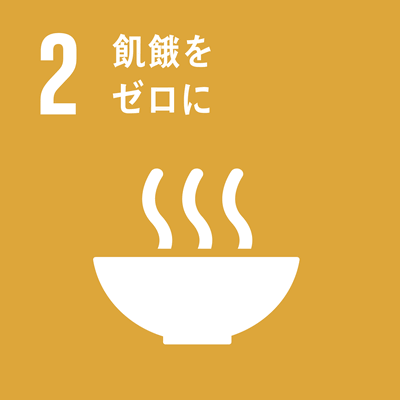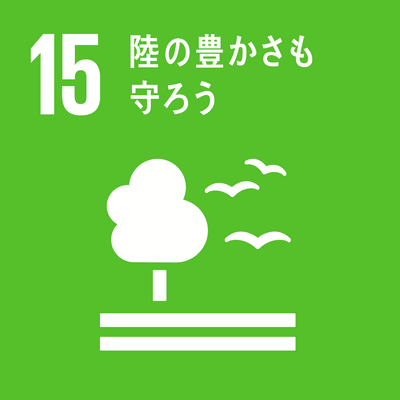シラバス表示
シラバスの詳細な内容を表示します。
→ 閉じる(シラバスの一覧にもどる)
科目の基本情報
| 開講年度 | 2020 年度 | |
|---|---|---|
| 開講区分 | 生物資源学部 | |
| 受講対象学生 |
全学科・全教育コース 学部(学士課程) : 2年次 |
|
| 選択・必修 | 選択 |
|
| 授業科目名 | Plant Science and Agro-ecology | |
| ぷらんと さいえんす あんど あぐろえころじー | ||
| Plant Science and Agro-ecology | ||
| 単位数 | 2 単位 | |
| ナンバリングコード | BIOR-Reso-3341
|
|
| 開放科目 | 開放科目
他学科の学生の受講可 *他のコースの学生の受講可 *他の学年の学生の受講可 |
|
| 開講学期 |
前期 |
|
| 開講時間 |
月曜日 7, 8時限 |
|
| 開講場所 | ||
| 担当教員 | タラガラ タランガ(特任教員) | |
| Thalagala Tharanga(特任教員) | ||
| SDGsの目標 |
|
|
学修の目的と方法
| 授業の概要 | As the threat of climate change, natural resource scarcity and declines in the provision of ecosystem services are continuing, the importance of studying on plants & agroecology is increasing as an option for addressing these problems. For that, effective communication with different nations, delivering new research findings and dissemination of modern technology are vital. Therefore this course is specially designed to deepen the knowledge related to botany, plant physiology, plant pathology, ecosystem and soil management using English as the medium, since English is widely used as a mean of instruction in a large number of educational institutions, language centers and universities, as a pathway to accessing broad knowledge of all fields and as a source of academic researches across the world and as a best tool for foreign language learning& teaching. This course offers lectures, explanation based on video clips, handouts, opportunities to perform formal presentations in English along with the variety of opportunities to improve listening, reading, writing & communication skills in English. This course will help them to properly understand research papers or any other scientific literature, involve in researches or projects and apply their knowledge to agriculture related problems in the world in the future. |
|---|---|
| 学修の目的 | To provide fundamental knowledge related to the plants and agroecology in English. To produce ideas an acceptable written form & extend the vocabulary in English related to the scientific fields. To improve communication skills in English by performing discussions, formal presentations and asking critical thinking questions during presentation sessions. To develop flexible and versatile human resources in this fast globalizing world. |
| 学修の到達目標 | Upon completion of this course students will be able to ・Improve the fundamental knowledge on plants and agroecology ・Follow lectures conducted in English ・Listen to the scientific English, extract required information and write that information in a formal report ・Conceptualize scientific information and express them in presentations (power point, poster etc.) answer to the questions and ask logical questions in English. ・Involve in national & international researches and projects ・Develop skills to challenge to the world without limiting to their own country. ・Find job opportunities both in national and international industries. |
| ディプロマ・ポリシー |
|
| 成績評価方法と基準 | Homework 40% presentation 30% inclass activities 30% ; students must attend more than 70% of the sessions in order to get the credits. |
| 授業の方法 | 講義 |
| 授業の特徴 |
教員と学生、学生相互のやり取りが、ほぼ英語で進められる授業 |
| 授業改善の工夫 | Students are expected to speak freely in English during the class. Making mistakes is not a big deal. Don't laugh at other students' mistakes. Lecturer speaks slowly and clearly which enable students to understand correctly.There is also be modifications on the form of lectures and proceeding of lectures in accordance with the ability of the students. |
| 教科書 | Handouts containing scientific facts & information are used. Text book will be informed during the guidance class, if it is necessary. |
| 参考書 | Students will be informed during the guidance class, if it is necessary. |
| オフィスアワー | Students may speak freely with the lecutrer before or after the class, or they may make an appointment by sending an email. |
| 受講要件 | 特になし |
| 予め履修が望ましい科目 | 特になし |
| 発展科目 | 特になし |
| その他 |
環境教育に関連した科目 Lecturer tries to supervise students individually as possible. Students should have eagerness or willingness to study and to improve skills of reading, listening, writing and speaking. Students are expected to do preparation, revisions of the lessons and thereby familiarize with the scientific English. |
授業計画
| MoodleのコースURL |
|---|
| キーワード | |
|---|---|
| Key Word(s) | angiosperms (flowerning plants), gymnosperms, bryophytes, soil, pests, bacteria, fungi |
| 学修内容 | Reading lessons are conducted using prepared handouts related to the agriculture, plants and ecology. Students should read and comprehend the passage (intensive reading) and should explain in English the meaning of its content. Writing lessons are conducted by asking students to prepare a short report based on their own lecture notes or gathering information from other sources such as internet, text books, research papers etc. As the homework students must write answers to the questionnaires given. Communication lessons are conducted by doing individual or group presentations. In the case of group presentations, students are divided into groups including 3~5 members in each group. Each member should do presentation around 10min. Students in the audience should ask creative & logical questions from the presenters. 第1回:Guidance: Overall discussion on purpose of conducting this course, contents of lectures, evaluation and grading system etc. 第2回:Seed plants (spermatophytes): students will learn on characteristics, vascular tissue, seed disperal, structure & functions of leaves, stem & root. 第3回:Angiosperms: students will learn on characteristics, structure of flower, formation of fruit, types, importance. 第4回:Gymnosperms: Students will learn on characteristics, types, reproduction, importance. 第5回:Plant pathology: students will learn on diagnosis of plant problems, stem & branch diseases, root diseases. 第6回:Translation: students have to translate a summary of a reasech paper written in Japanese into English focusing on technicla writing in English 第7回:Power point presentations in English 第8回:Power point presentation in English 第9回:Bryophytes & ferns: Students will learn on characteristics, types, structure and reproduction 第10回:Land and soil: students will learn on soil composition, formation, soil preparation and management, farming practices 第11回:Farming a dessert- vedio clip based explanation 第12回:Soil microorganisms: Students will learn on types, structure, kingdoms, reproduction, uses of soil bacteria and fungi 第13回:Pests and pest managemet: Students will learn on pest control methods, importance of biological methods, genetically modified crops 第14回:Power point presentation 第15回:Power point presentation 第16回:No end semester examination |
| 事前・事後学修の内容 | Attend to every class, submission of homework on date, well prepared and active participation in class activities will be highly appreciated. Those who want to upgrade the presentation skill further, we advise you to take the course on “presentation methods” which conducts from 16:20~17:50 on Tuesday in second semester. |


